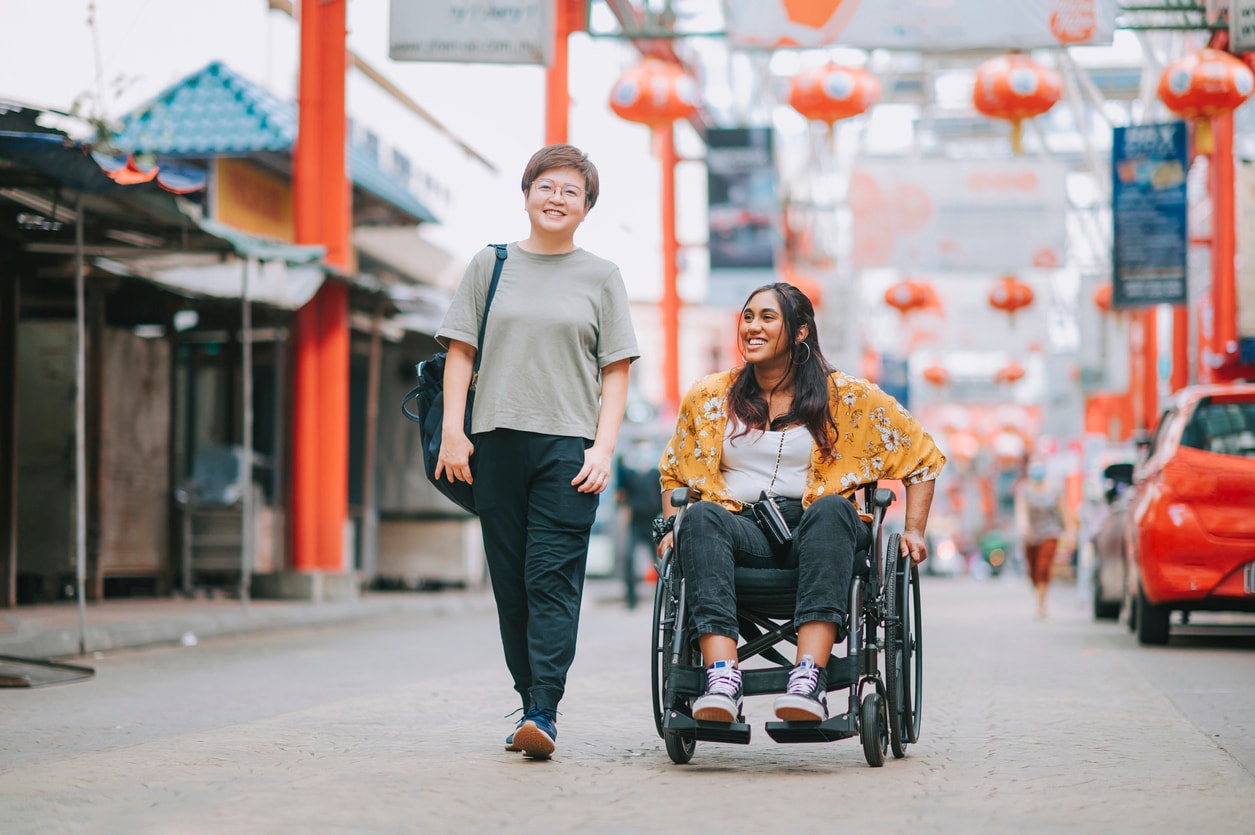2. Inform your agent of the situation
When booking your trip, be sure to let the reservation agent know in advance about any requirements or accommodations you may have. The Air Carriage Access Act (ACAA) prohibits airlines from discriminating against passengers because of disability, but airlines generally require advance notice if you require assistance or if you’re traveling with a medical/assistive device or service animal (more on this below). If you’re traveling with a powered wheelchair, especially if you’ll be flying on a smaller plane like those often used on regional flights, make sure it will fit in the cargo hold before officially booking your flight.
Most assistive devices, such as crutches, walkers, braces, wheelchairs and medical equipment used to administer medication, can be carried on board the aircraft only if the following conditions are met:
If your device fits and is FAA approved, you can stow it in the overhead bin, under your seat, or in a designated storage area.
Still, different airlines may have different rules, especially when it comes to bulky equipment like wheelchairs or potentially dangerous items like portable oxygen units. For example, airlines may require passengers traveling with oxygen equipment to give up to 48 hours’ notice, and may require them to check in and present a medical certificate one hour in advance.
At the airport, if you need extra time to board, stow your baggage, and get seated, consider requesting pre-boarding. According to the U.S. Department of Transportation, airlines must give passengers with disabilities the opportunity to pre-board, but passengers must make the request in advance to the gate agent.

